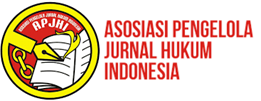Deciphering the Indus Valley/Harappan Script: A Comparative Linguistic Approach
DOI:
https://doi.org/10.70193/ijlsh.v2i2.238Keywords:
Indus Valley, Germanic languages, Harappan period, Indus ScriptAbstract
Symbols were taken from intact seals of the Indus Valley/Harappan civilisation and analysed for similarity to other known languages. Identical symbols were demonstrated. Text from 8 Indus Script seals were analysed and appeared to be related to the Germanic languages. The symbols identical to the Germanic languages were present in multiple seals from the Indus Valley/Harappan period and, therefore, may help elucidate some of the meaning of the Indus Script.
Downloads
References
REFERENCES
Bhargava, R. (2025). A retrospective study of the Indus script linguistics: A scientific approach to deciphering the ancient text. International Journal of Social Science and Human Research, 8(4), Article 47. https://doi.org/10.47191/ijsshr/v8-i4-47
British Museum. (n.d.). Stamp-seal. British Museum. https://www.britishmuseum.org/collection/object/W_1927-0527-201britishmuseum.org+1britishmuseum.org+1
Chen, M. (2025, January 28). A $1 million reward awaits anyone who can crack the ancient Indus script. Artnet News. https://news.artnet.com/art-world/ancient-indus-valley-civilization-script-1-million-reward-2602431
Chopra, A., Sinha, S., & Prasanna, S. R. M. (2019). Pattern discovery in undeciphered scripts using clustering techniques: A study on the Indus script. In 2019 International Conference on Document Analysis and Recognition (ICDAR) (pp. 1397–1402). IEEE. https://doi.org/10.1109/ICDAR.2019.00227
Gleimius, N. (2022, August 17). 5 ancient lost cities that were rediscovered. TheCollector. https://www.thecollector.com/rediscovered-lost-cities-ancient-world/
Hays, A. J. (n.d.). Ancient Middle East and North Africa: History, terminology, definitions. Africa ME. https://africame.factsanddetails.com/article/entry-235.html
Hirst, K. K. (2019, February 7). Seals and the Indus Civilization script. ThoughtCo. https://www.thoughtco.com/seals-and-the-indus-civilization-script-171330
Hirst, K. K. (2009, February 17). Scholars at odds over mysterious Indus script. New Scientist. https://www.newscientist.com/article/dn17012-scholars-at-odds-over-mysterious-indus-script/
Kenoyer, J. M. (1998). The Indus Valley Civilization: A contemporary perspective. American Journal of Archaeology, 102(2), 317–325. https://doi.org/10.2307/506919
Mackay, E. J. H. (1935). Indus civilization. Lovat Dickson and Thompson. https://archive.org/details/in.ernet.dli.2015.70456Internet Archive
Parpola, A. (1994). Deciphering the Indus script. Cambridge University Press. https://archive.org/details/decipheringindus0000parpInternet Archive
Rajesh, R. R., & McAlister, D. W. (2015). Machine learning and the decipherment of the Indus script. Journal of Computational Linguistics, 41(4), 789–812. https://doi.org/10.1162/COLI_a_00235
du Bois, R. (n.d.). Larger than life: The terra cotta sculptures of India. Ceramics Today. https://ceramicstoday.glazy.org/articles/clay_horses.html
Sproat, R. (2007). The Indus script and its relationship to the Dravidian languages. In M. K. Verma & R. K. Agnihotri (Eds.), Linguistic structure and language dynamics in South Asia (pp. 153–168). Oxford University Press.
Vijayabhaarati. (n.d.). A Harappan seal of Emperor Duryodhana of Hastinapura. Academia.edu. https://www.academia.edu/97468376/A_Harappan_Seal_Of_Emperor_Duryodhana_Of_Hastinapura
Wheeler, M. (1953). The Indus Valley and its inscriptions. British Museum Press.
Yadav, S., Bansal, R., & Sharma, R. (2021). Deep learning-based visual classification of Indus script signs using convolutional neural networks. Journal of Intelligent Systems, 30(1), 333–343. https://doi.org/10.1515/jisys-2020-0151
Forefathers-Art. (n.d.). Anglo-Saxon runes – Futhorc of the Anglo-Saxons. Forefathers Art. https://forefathers-art.com/anglo-saxon-runes-futhorc-of-the-anglo-saxons
Downloads
Published
How to Cite
Issue
Section
License
Copyright (c) 2025 International Journal of Law, Social Science, and Humanities

This work is licensed under a Creative Commons Attribution 4.0 International License.














